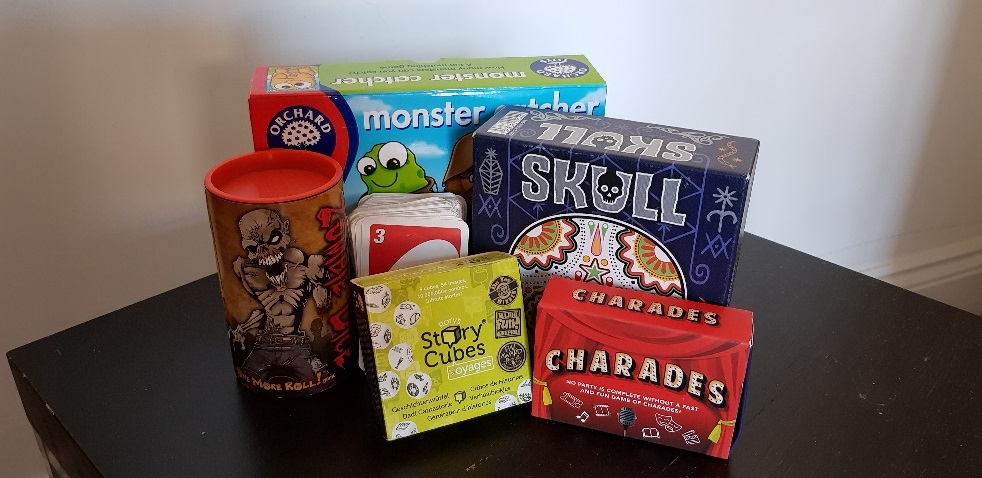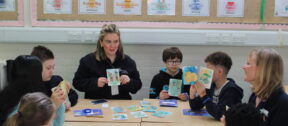How to Nourish the Brains of Young People
Written by Charlie Green, Deputy Head of Education at Suffolk Mind and Lead Trainer on Early Minds and Easy Minds Training Programme reaching Schools in Suffolk.
We all know that helping to nurture the mental health of the young people in our lives needs to be a priority, but how do we go about it while keeping all the other plates spinning?
Below are 5 bite sized ideas to help you nourish the brains of young people in your life.
Bite 1: Put Your Needs first
It might sound contradictory to approach helping others by first nourishing oneself, but your self-care – both in mind and body – will help you become more resilient and resourceful so you can respond healthily to the needs of others. We all need to be able to give good attention, be tolerant, be patient, to be able to hold healthy boundaries as well as being creative problem solvers.
This is not always easy with so many other demands upon us as adults, so having some privacy each day provides us with ‘head space’ and capacity to be able to do this. So, before you offer your bite sized help to others, take a bite for yourself! Being well in yourself is the greatest gift you can offer your young person.
Bite 2: Get them involved
Involve your young people in everyday useful tasks. When we are busy, it often seems easier to just do ‘it’ ourselves, but teaching and involving our young people helps them get a sense of responsibility, to learn skills and to feel like a useful part of the team or family. That sense of achievement and purpose will help raise their self-esteem and motivate them.
Tip! You have to be able to see past the initial refusals – encouragement all the way.
Tip! No helicopter parenting or over supporting – show them what you need them to do, then let them do it their way where possible. It meets their need for control and will increase their sense of achievement.
Bite 3: Screen Free Time
Our brains need time each day when we unplug and switch off from the stimulating and often addictive world of ‘online’ activity – a time to reflect, to unwind, to notice and interact with the real world and people around you.
So how do we encourage our young people (and ourselves) to put down the screens?
Remember that humans learn by copying, so start by making sure your screen use is balanced with other off-screen activities and ways to relax. We all know they will do what we do, not what we say.
Create some healthy ground rules that everyone sticks to. Here are some examples:
Healthy Rule 1: no phones at the table
Healthy Rule 2: No double screening during family film time (ask your kids what double screening is if you don’t know … you may realise you’re doing it yourself sometimes!)
Healthy Rule 3: No screen time until chores are complete. Screen time becomes something that is earnt, not a given privilege. “The more involved you are around the house, the more screen time you can earn”.
Healthy Rule 4: put your router on a timer switch (inexpensive to buy) so it automatically switches off between 10pm and 7am. Young people do not want to use their data up so this calms technology use over night
Healthy rule 5: put a basket for mobile phones in the kitchen and everyone – including adults – leave their phones in there overnight, or during screen free time on Sundays
Make sure you have interesting books and magazines available around the house. This doesn’t need to cost lots.
Play some games! In our house we needed a change – screens had really started to slide into our family time so now, after the kids have cleared away tea (allowing them to get their need for achievement met), we all play a short board or card game for about 20 minutes. Everyone gets involved – even the 15 year old looks forward to it now. We are starting to build up a good collection from birthdays, second hand shops and sharing with friends
Bite 4: Get Out of Your Mind and Into Your Body
By doing something physical – any kind of movement – it helps you get out of your head.
Are you in need of creative ways to get young people up and about? Put on their favourite song and dance about the house
We are blessed with amazing countryside in Suffolk so if possible, get out and about together at the weekends – even if they start by moaning, they will usually thank you for it afterwards.

Bite 5: Healthy Sleep Routine
Good quality sleep needs to be at the heart of everyone’s wellbeing, with school aged children needing between 10 and 12 hours each night. Sleep is a vital maintenance tool for both mind and body and we all know how much better we feel and behave when we have slept well. Yet despite knowing this, sleep is often the need that gets compromised most, especially by young people.
If you can encourage your young people to engage with a few of the above bites, as well as doing some yourself, transitioning into sleep at the end of each day will become much easier for everyone. The trick is to create a routine that works and stick to it as often as you can.
An extra tip for you is to get into the habit of ‘dragon breathing’ each night before bed, or in bed to help you get back to sleep if you wake. It is literally the opposite of a panic attack – a relaxation episode! Find out how to do it by watching the video below.
And lastly, be compassionate with yourself. Raising young people is incredibly rewarding, but we all know it is also exhausting and challenging at times and we are all human and can run out of steam.
Remember to notice what is going well, celebrate the small stuff and put the need to be perfect in the bin – there is no such thing as a perfect parent or carer. Be good enough. Love them enough. Support them enough. Approach your caring or parenting with just one bite at a time.















